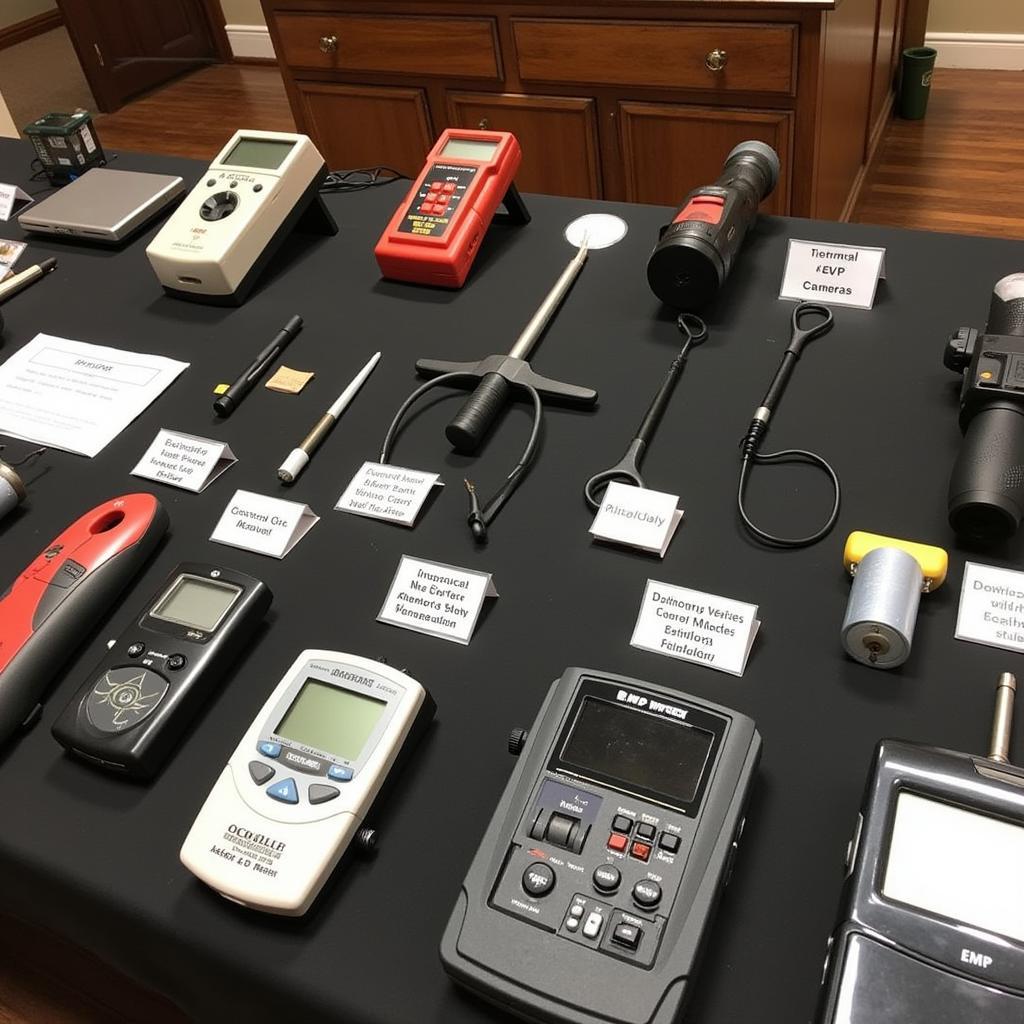Research Context is crucial for any investigation, especially when delving into the enigmatic realm of the paranormal. It provides the background, the setting, the very foundation upon which we build our understanding of strange phenomena. Without a solid research context, our findings lack credibility and our conclusions remain speculative at best.
Defining Research Context: The Foundation of Paranormal Inquiry
What exactly is research context? In simple terms, it’s the framework within which research is conducted. It encompasses the historical background, the geographical location, the social and cultural influences, and any other relevant factors that might shape our understanding of a paranormal event. Think of it as the stage upon which the paranormal drama unfolds. context research provides the setting, the backdrop, and the necessary details to make sense of the performance.
Why Context Matters in Paranormal Research
Context is the key to unlocking the mysteries of the paranormal. It allows us to separate genuine phenomena from mundane occurrences, cultural interpretations, or psychological factors. For instance, a reported apparition in a historically significant location might carry a different weight than a similar sighting in a newly constructed building. Understanding the history of the location, its past inhabitants, and any associated folklore can offer valuable clues.
The Various Layers of Research Context
Research context is multi-layered. It’s not just about the physical location; it also involves understanding the psychological, social, and cultural factors at play. Consider the beliefs and traditions of the individuals involved in a paranormal experience. Their cultural background can influence how they perceive and interpret the event.
How to Establish Research Context: A Paranormal Investigator’s Toolkit
Establishing a robust research context requires meticulous investigation and a keen eye for detail. Here’s a breakdown of the process:
- Historical Research: Dive into the history of the location. Are there any documented paranormal events associated with the site? What about its past inhabitants? Any tragic events, unsolved mysteries, or local legends?
- Environmental Assessment: Examine the physical environment. Are there any natural phenomena that could explain the reported activity? Electromagnetic fields, infrasound, or unusual geological formations can sometimes mimic paranormal experiences.
- Witness Interviews: Conduct thorough interviews with witnesses. Pay attention not only to their account of the event but also to their personal beliefs, cultural background, and psychological state.
- Cultural Analysis: Explore the local folklore and cultural beliefs surrounding the reported phenomena. Are there similar stories or traditions in the area? This can help understand the cultural lens through which the event is being interpreted.
 Paranormal Investigation Tools and Equipment
Paranormal Investigation Tools and Equipment
Dr. Evelyn Reed, a renowned anthropologist specializing in paranormal folklore, emphasizes the importance of cultural context: “Understanding the cultural narratives surrounding a paranormal event can often reveal more about human perception and belief systems than about the event itself.”
Applying Research Context to Specific Paranormal Phenomena
Different types of paranormal phenomena require different contextual approaches. For example, investigating a poltergeist case might necessitate focusing on the psychological state of the individuals residing in the affected location. in the research context what is a population becomes a crucial question, particularly regarding the residents of the location being investigated. Whereas researching a haunted location would require more emphasis on historical research and local legends.
context for research in a haunting investigation might involve examining historical records, architectural blueprints, and local folklore.
The Importance of Skepticism and Critical Thinking
While embracing the mystery of the paranormal, maintaining a healthy dose of skepticism and critical thinking is essential. Research context helps us evaluate evidence objectively and rule out alternative explanations.
Professor Alistair Finch, a prominent parapsychologist, reminds us: “A good paranormal investigator is a skeptical inquirer, not a blind believer. Research context provides the framework for discerning between genuine anomalies and misinterpretations of ordinary phenomena.”
Conclusion: Research Context – The Cornerstone of Paranormal Understanding
In the world of Paranormal Research, context is everything. in context research, it allows us to build a comprehensive picture of the event, separating the truly unusual from the easily explained. By understanding the historical, environmental, psychological, and cultural factors at play, we can approach paranormal investigations with a more informed and discerning perspective. Through meticulous research and critical analysis within the proper research context, we can strive to uncover the truth behind the unexplained.
Need help with a paranormal investigation? Contact us at Phone: 0904826292, Email: research@gmail.com or visit us at No. 31, Alley 142/7, P. Phú Viên, Bồ Đề, Long Biên, Hà Nội, Việt Nam. Our team is available 24/7.